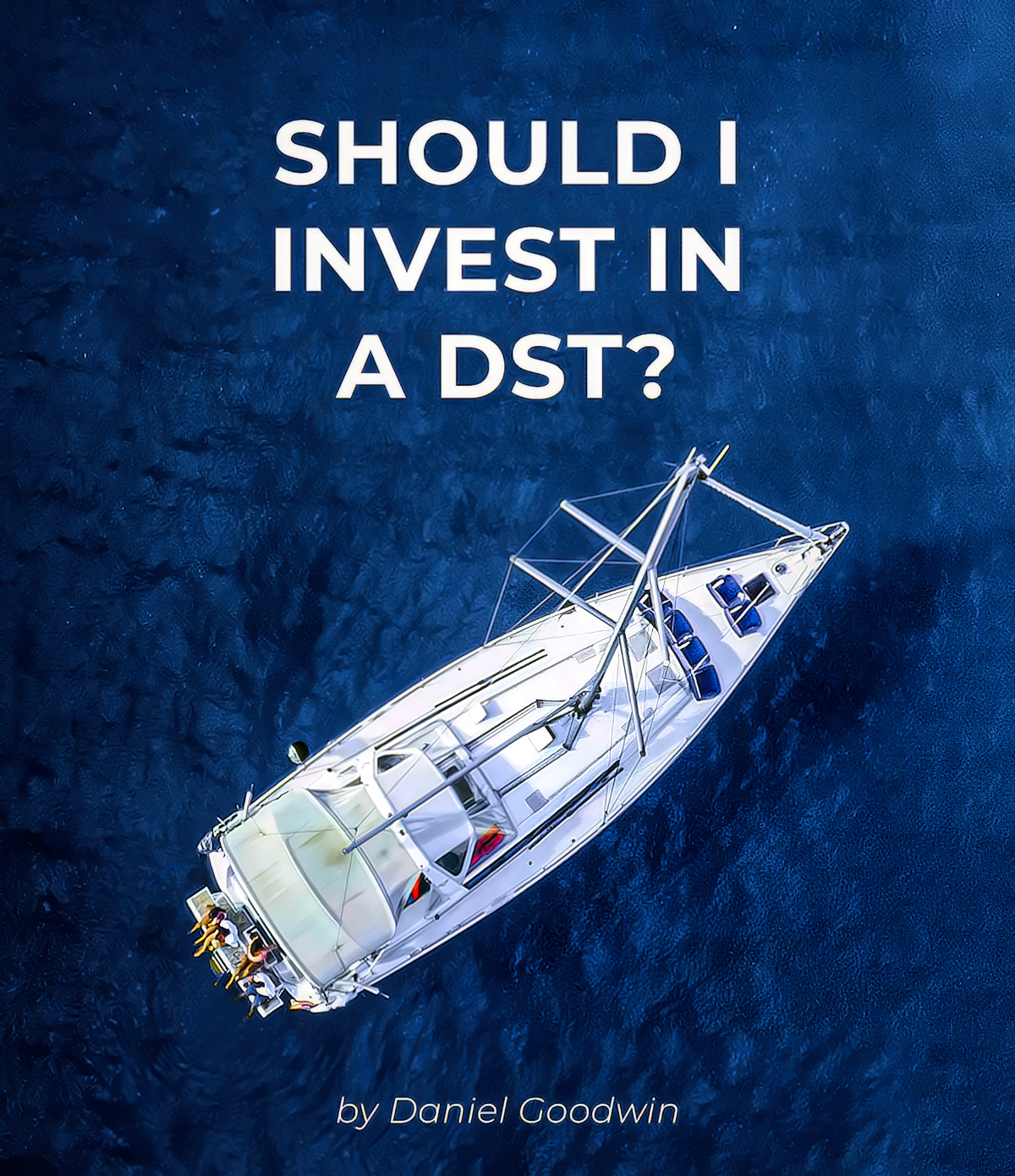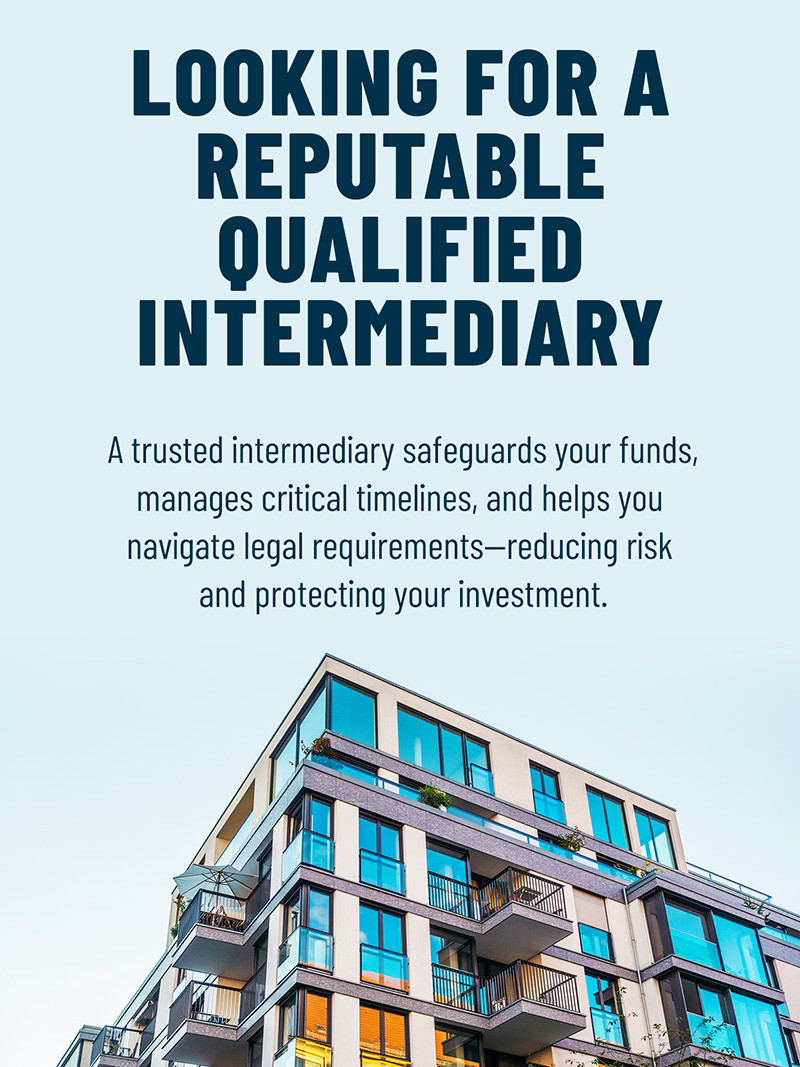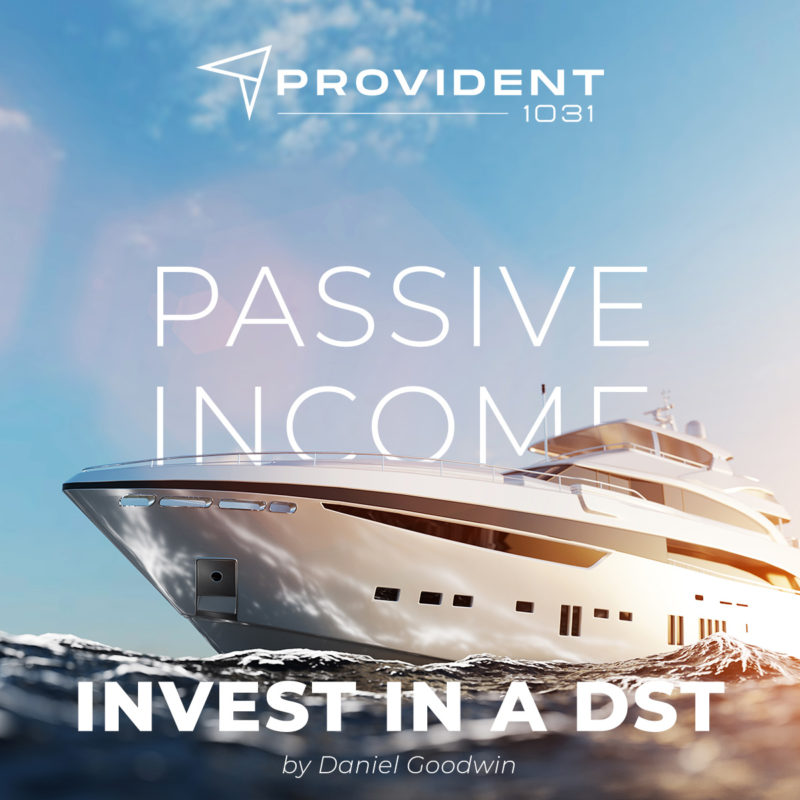Should I Invest In A DST?

Should I Invest in a DST?
DSTs (Delaware Statutory Trusts) are attracting a significant number of accredited real estate investors.
Why?
Several reasons, such as:
Guide To A 1031 ExchangeDSTs offer an excellent opportunity to invest in commercial and multi-family real estate assets at a significantly reduced cost. Through a 1031 exchange, individuals can sell a rental property and use the proceeds to acquire shares in a DST investment structure, thereby gaining access to assets like Amazon distribution centers, Class-A apartments, and portfolios of Walgreens or Walmart stores.
However, there is no “one-size-fits-all” investment strategy that works for every investor. While a DST may suit one real estate investor, it may not be the best choice for another.
What Is A DST?
A DST, short for Delaware Statutory Trust is a separate legal entity created under the laws of the State of Delaware to hold title to one or more income-producing commercial properties.
A DST offering can be commercial property, retail space, apartments, manufactured housing developments, industrial parks, office buildings, retail centers, and more.
In a DST, each investor owns a “beneficial interest” in the trust, which owns the underlying real property. This DST interest entitles the real estate investor to his or her pro-rata share of income and appreciation in the DST’s assets. DST assets are typically offered by large national real estate firms.
Why Are DSTs Growing in Popularity?
There are several reasons DSTs are growing in popularity, such as:
According to GlobeSt.com, there has been over $20 Billion raised in securitized 1031 co-ownerships structured as Delaware Statutory Trusts since 2004. I believe it’s reasonable to say DSTs have earned such popularity due to the advantages for real estate investors.
DSTs are highly popular, leading to approximately 11,800 monthly searches for various keywords related to Delaware Statutory Trust, as reported by SEMrush. The individual keyword “Delaware Statutory Trust” alone attracts 4,100 searches per month. Moreover, my article titled 5 Types of Investors Who Should NOT Do A Delaware Statutory Trust, published in Kiplinger, ranks as the 6th top search result nationwide for the keyword Delaware Statutory Trust.

Imagine you want to sell your rental property and invest in something that could provide you with dependable and consistent income while also doing away with the hassles of tenants, late-night phone calls, repairs, or unexpected maintenance expenses like a new roof or HVAC.
Selling your real property and placing the proceeds in the bank may sound like a good plan. But still, you may be subject to income tax of up to 20%, net investment income tax of 3.8%, depreciation recapture of 25%, along with state income taxes, if applicable. In this scenario, you could give away a substantial portion of your gains to the IRS without a proper tax plan or strategy.
In contrast, you may defer tax gains if you invest your sale proceeds in a DST, which allows you to co-invest with other beneficiaries in one or more high-grade DST investment properties.
The formation of the Trust is done by DST sponsors (usually LLCs — limited-liability companies), who pool the money from smaller investors and invest it in a single, sizable real estate investment.
DST Sponsors
This structure offers several benefits, such as acquiring passive ownership in institutional-quality assets, minimum investments, and no renting/asset management responsibilities. It also helps diversify your investment portfolio and removes managerial hassles associated with property management since a DST sponsor is managing the property.
Moreover, in today’s volatile real estate market, a DST can provide a more reliable closing as DSTs can be more readily available.
Also consider that DSTs are offered only to “accredited investors,” which in general means an individual or entity with a net worth apart from one’s primary residence in excess of $1,000,000, or an income of $200,000 if single or $300,000 for a married couple.
In addition, certain exclusions apply to the IRS rules. Your DST firm associate will make sure you meet the IRS qualifications.
So, should you invest in a DST?
At Provident 1031 we are here to help you answer that question. Contact us today and arrange a consultation with me or a member of my team.




















